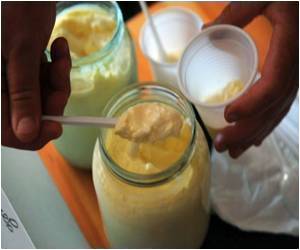Mucor circinelloides f. circinelloides (Mcc) strain of the fungus responsible for an outbreak of contaminated Greek yogurt is commonly associated with human infections.

"When he heard about the Chobani recall after reports of people becoming sick from yogurt contaminated with Mucor circinelloides, we thought the M. circinelloides strain could cause more serious problems than one might think." says Soo Chan Lee of Duke University, an author on the study.
Whole-genome sequence analysis of the yogurt isolate confirmed it as being closely related to Mcc and also revealed the possibility that this fungus could produce harmful metabolites that were previously unknown in this species. The researchers then tested the strain on mice, where the fungus showed an ability to cause lethal infections when the fungal spores were injected into the bloodstream as well as to survive passage through the GI tract when the spores were ingested orally.
"When people think about food-borne pathogens, normally they list bacteria, viruses, and maybe parasites. Fungal pathogens are not considered as food-borne pathogens. However, this incidence indicates that we need to pay more attention to fungi. Fungal pathogens can threaten our health systems as food-borne pathogens" says Lee.
Source-Eurekalert













